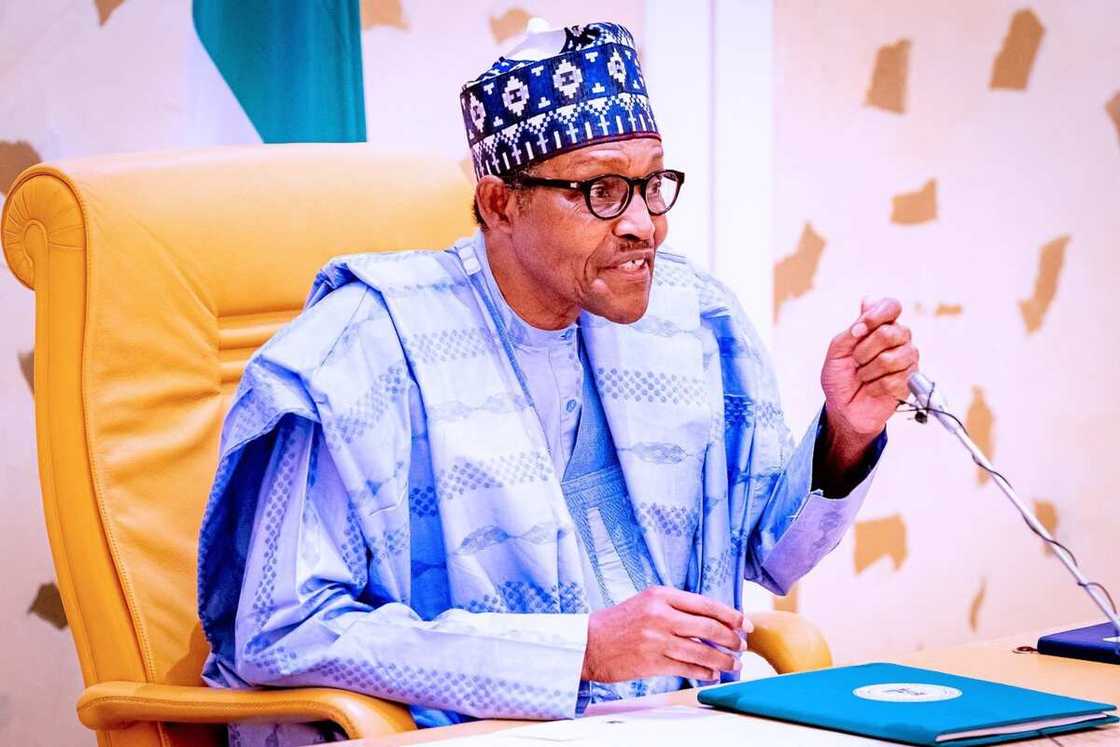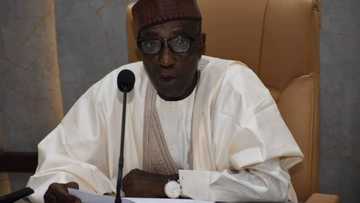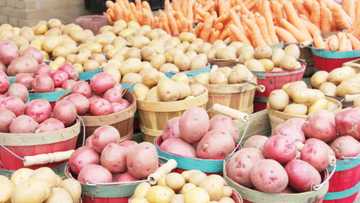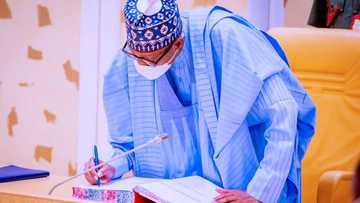Insecurity, Others Hindered Nigeria’s Economic Growth, Says Ahmed
- Nigeria recorded a strong economic showing resulting in the attainment of a GDP of 5.01% in the second quarter of 2021
- The country's finance minister, Zainab Ahmed, says the results would have been better if not for security challenges
- The minister also addressed the issue of borrowing, investment in infrastructure and other economic issues
FCT, Abuja - Nigeria’s finance minister, Hajia Zainab Ahmed, says the country's latest impressive economic growth would have been better if the country had been more secure.
Mrs. Ahmed made the statement on Monday, August 30 while addressing journalists in Abuja including a Legit.ng reporter.

Source: Facebook
She said save for the country’s spate of insecurity that has affected growth in agriculture, the gross domestic product was bound to grow higher than 5.01 percent recorded in the second quarter, as announced last week by the National Bureau of Statistics (NBS).
Her words:
Do you have a groundbreaking story you would like us to publish? Please reach us through info@corp.legit.ng!
“The 2021 second-quarter growth reflects better economic performance compared to the same quarter last year. The same quarter last year we had negative growth of -6.10 percent. It is also better than the first quarter of 2021.
“The service sector recorded a strong performance, growing by 9.27 percent this reporting quarter – representing the fastest growth in this sector since 2010.
“The second-quarter growth of 2021 would have been much stronger than the 5.01 percent, but for agriculture, that recorded a slightly lower growth.
“A number of bottlenecks within the system, including insecurity, negatively affected the sector. Also, the industrial sector slowed down to -1.3 percent.”
Minister says borrowing by government logical
Hajia Ahmed also said borrowings by the government to finance critical projects amid dwindling revenue have so far been done “sensibly.”
She argued that the borrowings are needed to tackle the problems of the revenue shortfall.
She said:
“I want to assure you that we are borrowing with very close consideration to the sustainability of the borrowing; the borrowing levels for Nigeria today is still 23 percent of the Gross Domestic Product, GDP.”
The minister also said if Nigeria does not invest in infrastructure, the country will regret it.
Alhaji Lai Mohammed; minister of information and culture, Prince Clem Agba; minister of state budget and national planning, and the newly appointed Statistician-General of the Federation, Dr. Simon Harry were present at the press briefing.
Nigerian economy bounces back
Recall that the NBS on Thursday, August 26, released the GDP report for the second quarter of 2021.
For the first time since 2014, the GDP grew by 5.01% (year-on-year) as the economy bounced back from the effects of the COVID-19 pandemic.

Read also
Nigeria’s food system is weak, vulnerable to shock - FG admits, unveils plan to stop sugar importation
The latest GDP report by the NBS also indicates that the real GDP (quarter-on-quarter) grew at -0.79% in Q2 2021 compared to Q1 2021.
Reacting, President Muhammadu Buhari hailed the report, saying the growth, which continues the progress of the preceding two quarters, is a continuing trend reflecting Nigeria's economic rebound following the COVID-19-induced contractions seen in Q1 and Q2 2020.
President Buhari commended managers of the economy for hard work and commitment, urging them to keep at it till the positive development touches the lives and pockets of the average Nigerian.
He assured that recent reforms and efforts by his administration will create conditions for more robust levels of growth in the future.
Source: Legit.ng




